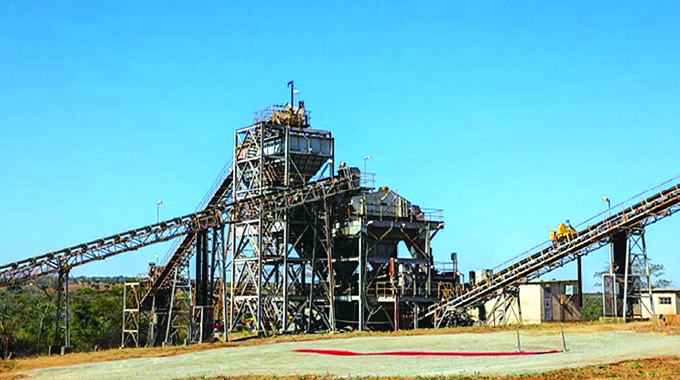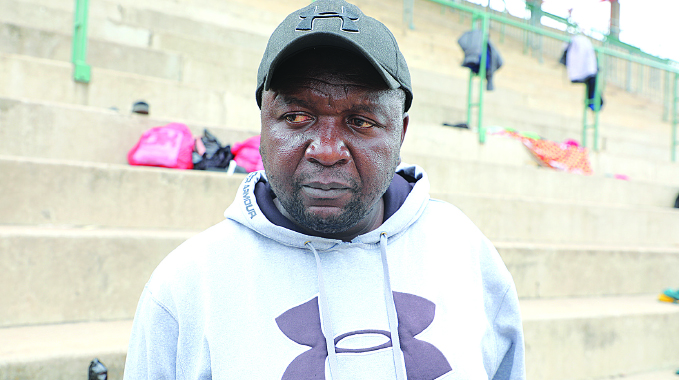Economic policies must encourage home-grown solutions

Ruth Butaumocho African Agenda
Globally, quite a number of products are in short supply amid revelations that the world is faced with a supply chain crisis.
There are reports that the United States is running out of turkeys and Christmas trees, while Australia is said to have run out of timber for building houses.
It is reported that some of the world’s biggest economies have run out of toys!
Similar challenges are being faced in some parts of Africa because of the intermittent closures of factories and some of the major industries in the world owing to the effects of the Covid-19 pandemic.
The advent of Covid-19 has not only brought about loss of lives and trauma, it has also resulted in the closure of some of the world’s biggest factories and production chains.
Disruptions in the supply chain is a crisis that several countries are already grappling with, as more states try to innovate and come up with sustainable strategies to ensure that there are no disruptions in productions.
With indications of a possible Covid-19 fourth wave that is set to further decimate economies and result in thousands of death, it has become incumbent on each country to insulate itself against further disruptions.
While the globe is preparing for a fourth and probably deadlier wave of yet another strain of Covid-19, a new trajectory of Zimbabwe’s capabilities has been emerging on the horizon in the last few months.
Realising that the biggest strategy that guarantees solutions to local problems is to take an inward approach, the Government, local investors and communities have given the nation something to smile about following a number of measures that have been put in place to boost local production of goods and services throughout the country.
Locally produced goods and services are finding their way to the country’s markets as more companies and projects are being opened in line with Zimbabwe’s policy of import substitution.
Following the Covid-19 outbreak in China in 2019, several countries put their economies and borders under lock as they battled to contain the spread of the disease.
The abrupt decision saw several countries lowering their productivity and in the process limiting income growth.
Producing for export was now considered a luxury because countries had been incapacitated due to illness and lockdown restrictions.
It is because of the 2020 learning experience that countries are saying development of productive capacities is a fundamental step in sustaining and transforming the economies after most countries shut their borders to external traffic.
However, sad, as this may sound, the pandemic also raised the possibility of large structural changes to the global economy, some which are already proving to be productivity-enhancing.
According to the World Bank reading of aggregate economic indicators for April to July 2020 and the economic news from various African countries, economic recovery may happen more quickly than some observers have anticipated for some countries, while for others, it might be slower.
For the African countries that have been able to recover much faster than the rest, their winning formula has been resuscitating and boosting local industries.
Realising the need to grow the economy following a lull in economic activities, Zimbabwe has since embarked on increasing capacity utilisation, resuscitating industries and opening new factories as part of a litany of its home grown solutions.
The robust initiatives have resulted in increased economic activities, which have seen a good supply of locally produced goods and employment creation.
Thousands of people have this year alone secured jobs at the several production outfits the Government reopened, after increased capacity utilisation and from those companies that started operating for the first time.
Eureka Gold Mine, Guruve’s biggest mine, which was opened a week ago, has to date employed more than 400 people and is currently working with several local companies to ensure that the mine takes off smoothly.
Similar initiatives such as the commissioning of the Marula/Mapfura Processing and Value Addition Factory built by the National Biotechnology Authority of Zimbabwe at Rutenga in Masvingo and a fruit and vegetable processing plant in Mutoko are already pointing to a positive path of sustainable growth and socio-economic transformation buoyed by these new projects.
The two which are community based projects will create hundreds of jobs for the locals, who no longer need to travel to cities to look for employment.
Since the resources needed to run the factories are abundantly available in the same communities, locals can expect to get more money for their crops since value would be added to the raw materials.
Other parts of the country are also enjoying fruits of the Government’s drive to stem imports and produce local goods and services in line with the import substitution strategy.
A few months back, President Mnangagwa commissioned a multi-million dollar medical oxygen and industrial gas plant at Feruka in Mutare, with capacity to meet national needs as well as exporting to neighbouring countries,
The oxygen plant, an ideal project in times like this where Covid-19 is ravaging communities will among other needs, also meet the demand for hospital oxygen in intensive care units for other health-related complications.
Speaking at the commission of the Marula Processing Factory in Rutenga on Monday, President Mnangagwa said the country had confidence in the capacity of local talent to proffer solutions to some of the country’s challenges as Zimbabweans angled for inclusive growth that took everyone aboard in all parts of the country.
He added that he was taking lead from world-leading economies by leveraging on their natural endowments to drive growth.
Such robust initiatives is what other African countries need to embark on to ensure they rely on home-grown solutions for their people during turbulent times and beyond.
Yes, Covid-19 did decimate lives, bringing untold suffering to millions of people across the world.
The pandemic also brought to the fore the jolting realisation of countries’ dependency on imports, even for the whole food chain of their people.
The dawning realisation of over-reliance on imports catapulted several countries to action and come up with home-grown solutions for their problems.
It remains uncertain how long Covid-19 will be with us.
However, what is clear is that countries will now need systems that can build and retain more human and physical capital during the recovery period by coming up with economic policies that encourage home-grown solutions for their problems.
These policies should reflect and encourage the post-pandemic need for new types of jobs, businesses and increasing capacity utilisation for local companies to insulate the countries against any unforeseeable challenges.
Feedback: [email protected]









Comments